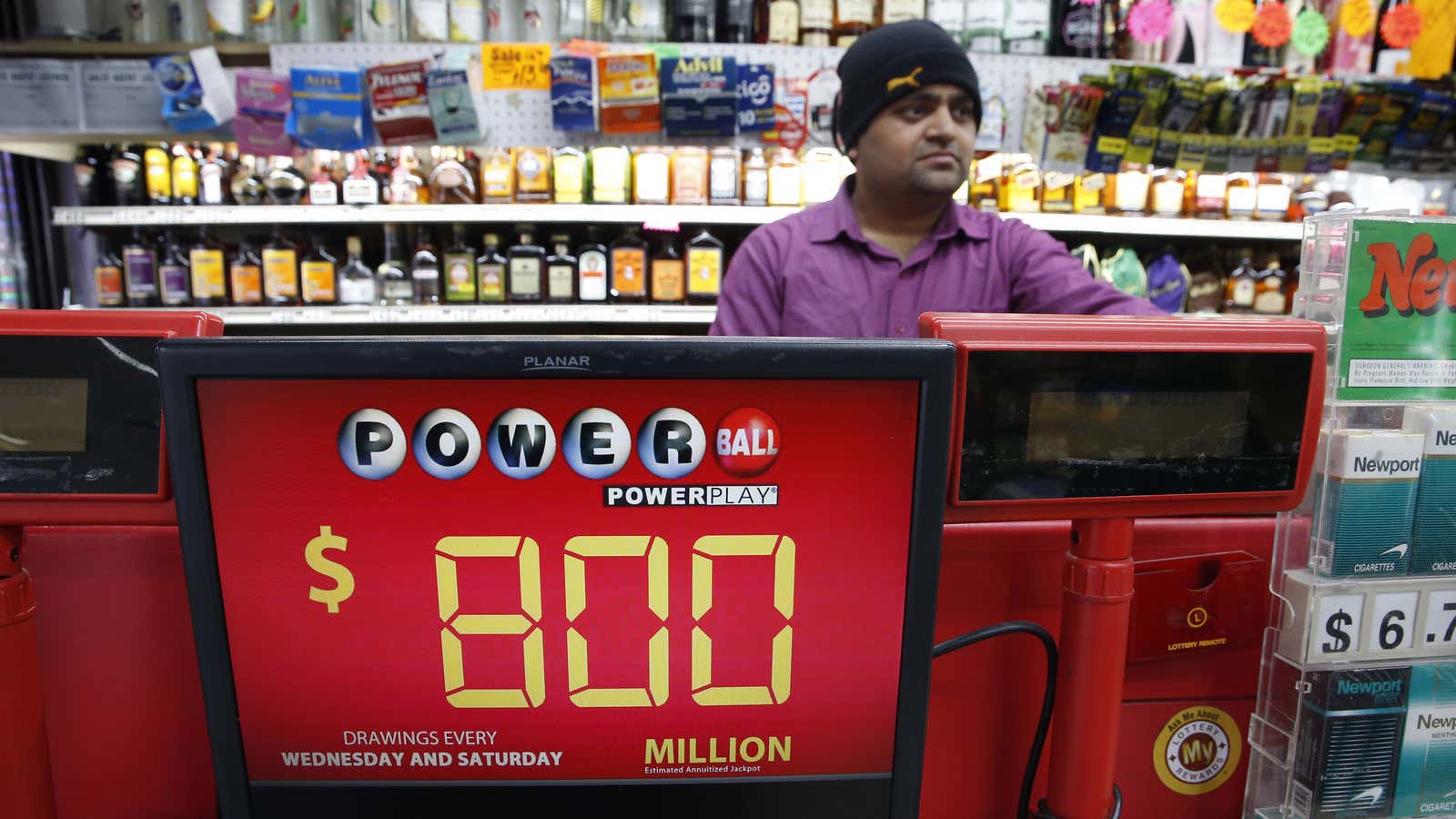At $800 million, the Jan. 9 Powerball jackpot is the biggest prize up for grabs in US lottery history. It’s still not quite large enough to make a ticket’s expected value greater than its $2 cost, but the math has rarely looked better for Powerball players. Meanwhile, across the pond, the expected value of a ticket in today’s UK national lottery actually is greater than what it costs to play, prompting The Guardian to declare that buying a chance in the Camelot drawing “makes mathematical sense for the first time in its history.”
Expected value is the concept in probability that averages all the possible outcomes of a situation, with each weighted against the likelihood of it happening.
In the case of the Powerball drawing, the expected value of a $2 ticket is just slightly over $1, so it’s not mathematically worth playing at this point. Ethan Wolff-Mann over at Time calculates that the jackpot needs to be closer to $1.7 billion for the math to work out in the average ticket buyer’s favor—that’s after adjusting not only for the overall odds but also things like taxes, the discount applied against winnings received in a lump sum, and the chances of having to split the pot with multiple winners.
But if you choose to play anyway, consider letting the computer pick the numbers for you—it’s the more conservative way of ensuring no one else picks the same numbers and forces you to share the prize. “If you play variants of your birthday or ‘lucky’ numbers that’s a strong possibility,” writes Alex Tabarrok for Marginal Revolution. “If you let the computer choose, your chances are better, but with so many people playing it wouldn’t be surprising if two people had the same number—I give it 25%.” That would drop your overall winnings down to $372 million pre-tax—not nearly the number you’d need to make playing today’s lotto worthwhile. And with the federal government taking around 40%, that leaves you with about $233 million to take home—nothing to sneeze at, but it drops the expected value of a $2 ticket down to $0.75.
The UK’s £58 million ($84 million) jackpot is, like its US counterpart, a record prize. The expected value of a UK lotto ticket is usually about £0.95 ($1.38), but today, it might be as high as £4.50, according to the number-crunchers at KPMG. “In mathematical terms, it’s a rare occurrence when the expected value from playing the lottery is higher than the cost of a ticket,” Josh White, associate director of KPMG’s economic practice, told The Guardian. “Statistically there has never been a better time to play!”
One of the reasons is the October rule change by Camelot, the UK lottery operator, that expanded the number of possible picks. Ticket holders now have to choose six numbers from 1 to 59, versus 1 to 49 previously. That’s made it harder to win, which has led to bigger and bigger jackpots rolling over.
Of course, whether playing in the US or UK, chances are you haven’t bought a lucky ticket. In the UK, the likelihood of winning the jackpot is about 1 in 45 million. (That pits you against nearly every eligible player in the British population, around 50 million.) Back in the States, the odds are even worse, at around 1 in 292 million.
